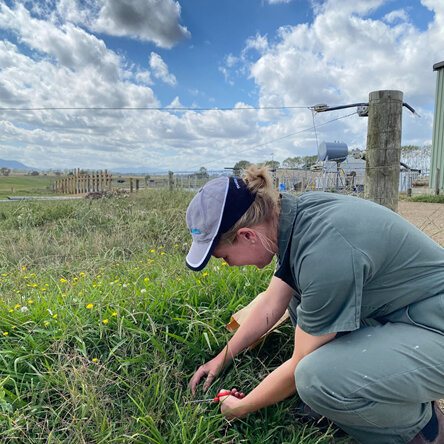Franklin Vets
Franklin Vets - excellence in veterinary care for dairy, farming, lifestyle, equine and household pets. BESTPRACTICE ACCREDITED NZ.
Your account is powered by Storbie. To edit your profile visit my.storbie.com
Your account is powered by Storbie. To edit your profile visit my.storbie.com

Humid, warm weather is usually the trigger for a spore count increase and we have had plenty of that in recent weeks. Night temperatures at our Taupiri branch have been averaging around 17°C in January which surpasses the 12°C minimum needed for FE-causing fungus to produce spores, and there has been plenty of hot rainy days. We have been lucky to see minimal spore counts so far, but counts will likely rise to dangerous levels if the warm weather continues like it is meant to. Just this week spores have climbed into the mid 20,000 range around Taupiri which can cause plenty of harm if the cows are exposed over days or weeks.
Prevention is key to minimising both production losses and the impact on animal welfare, and cows who are clinically affected can only be given supportive care while their bodies try to recover. Typically prevention involves providing zinc (in water and feed for milking cows, and oral bolusing of dry stock) and avoiding hard grazing of pasture. There are additional measures like fungicidal sprays but given the current rainy weather, it is worth considering the efficacy vs cost of pasture treatments.
The reason prevention is so critical is that for every 1 clinically affected cow there is estimated to be 10 cows subclinically affected – these animals still have liver damage and can have their milk production halved. DairyNZ has a great cost calculator for subclinical eczema, or you can talk to your dairy vet for tailored management advice.
The techs have been busy collecting and reading spore counts across the branches to ensure clients have local and up-to-date results, so give them a call if you have any questions. For the most accurate results feel free to bring in 60g of grass to your nearest clinic for a count on specific paddocks; just make sure you get a sample from across the entire paddock for an accurate count.
There are many different monitoring and management options available through your local Franklin Vets clinic including blood tests, spore counts, different zinc products, and ways to help your affected cows through the healing process.
Caitlyn Nielsen, RVT, Taupiri.
Franklin Vets - excellence in veterinary care for dairy, farming, lifestyle, equine and household pets. BESTPRACTICE ACCREDITED NZ.



